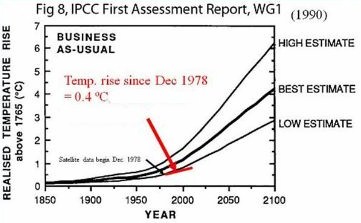
Computer Models, Climate Forecasts
and other Dice Games.
The Carbon Sense Coalition today called for an investigation into the IPCC/CSIRO computer models relied on for the scare forecasts of drought, floods and rising sea levels.
The Chairman of “Carbon Sense”, Mr Viv Forbes, challenges the IPCC claims that their computer forecasts have a 90% probability of being correct.
“The World Bank computers did not forecast the Global Financial Crisis.
The British Met computers failed to forecast Europe’s frigid winter.
Computers were unable to forecast the spread of swine flu or volcanic ash clouds.
Since the introduction of its new computer program Queensland Health has been unable to pay its own employees properly.
And the Australian Weather Bureau cannot forecast next month’s weather.
Yet we are asked to believe that the IPCC computers are able to forecast global temperature, sea levels, hurricanes, droughts and diseases for a century ahead. They promise that, if we just stop using coal and oil, everything will be rosy.
That is like betting our jobs, our industry and our energy and food supplies on a roll of the dice in the casino.
There are about 20 Global Circulation Models using variable assumptions that claim to represent climate processes.
Every model uses suspect or manipulated data and disputed processes, is fudged to fit past data and its forecasts reflect the biases of the builder.
In twenty or so years of forecasting, not one has yet made a forecast that has proven to be correct. Moreover, no two forecasts agree.
But we hope one gets it right soon so we can scrap the other 19 and so save a lot of money.
Until then, all IPCC forecasts should be written in pencil.
And we should ignore them.”
Viv Forbes
Chairman,
The Carbon Sense Coalition,
Rosevale, Qld, Australia
carbon-sense
Phone 07 5464 0533
Email: Info@carbon-sense.com
Disclosure: Mr Forbes is a geologist, mineral economist and pasture manager with long experience in the Australian coal, oil, gas and grazing industries.

IPCC Temperature forecast from 1990 shown above. The observed temperature rise is well below the 'lowest possible' scenario predicted. There has been no significant warming since 1995.
big turbines
small turbines